
First premiering in Japan on October 5th, 2004, Bleach told us the story of Ichigo, a brash, orange haired teen who was an ordinary high schooler one minute and a substitute Soul Reaper the next. Caught between the world of the living and the world of souls, Ichigo’s unique journey as he carries out his duties while trying to balance his humanity becomes the heart of the series. But that’s not all the anime had going on for it. Whether it was the urban backdrop of Karakura Town or the hollow-filled battles in Hueco Mundo, Bleach had a texture that made it stand out.
This series was a lot more serious than was typical of shonen anime at the time. While Ichigo’s heart was always in the right place, he never came across as idealistic or naive, a sharp contrast to other Shonen protagonists like Naruto or Goku. Thanks to these traits, Bleach earned its place among the shonen Big Three alongside giants like Naruto and One Piece. And as the series dominated the action anime genre in the 2000s, it spawned dozens of similar anime to remind us of the days “Number One” was blaring through every otaku’s speakers. So without further ado, let’s dive into this list of 10 best anime Bleach fans shouldn’t miss out on.
Jujutsu Kaisen
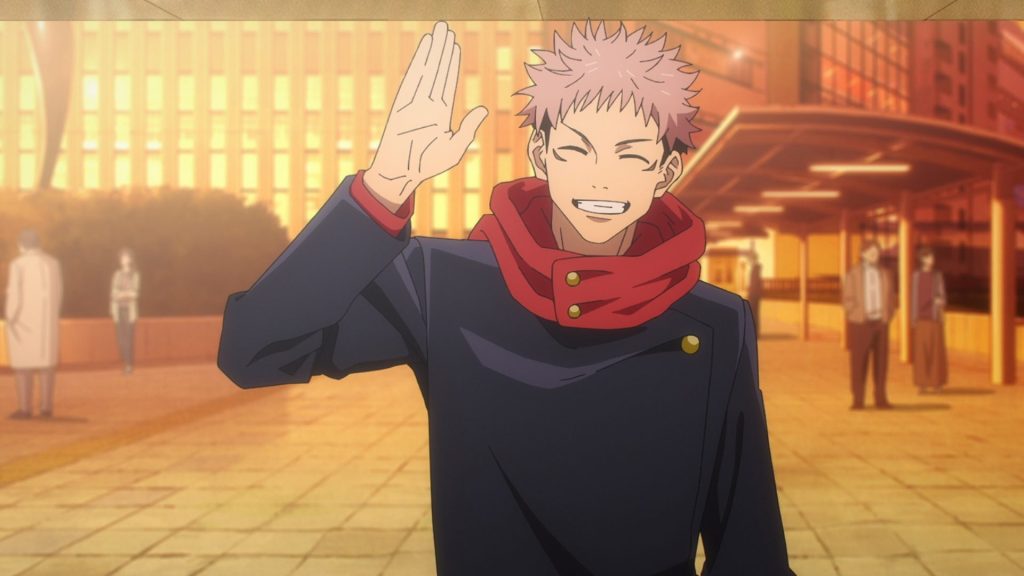
With Bleach’s Hollows and Jujutsu Kaisen’s Curses, these series are practically twin flames when it comes to supernatural monsters and a secret society of people trained to fight them. Jujutsu Kaisen follows Yuji Itadori, a teenaged high schooler who accidentally swallows a Cursed Object and is forced to enter the world of Sorcerers and Curses, battling powerful supernatural enemies to protect those weaker than him. Like Ichigo, Yuji starts off as a reluctant hero before embracing his role as a guardian.
But the biggest similarity between these two series is the nature of Hollows and Curses. Both are invisible to normal humans despite being a danger to them in some way. In Bleach, the Hollows feed upon humans with above average spiritual energy. While in Jujutsu Kaisen, Curses feed upon human emotions. In both anime, the ones fighting these supernatural creatures take the form of organized factions with strong mentors and hierarchies. If you enjoyed Bleach for its dark themes and emotionally fueled action, Jujutsu Kaisen will feel right at home.
Yu Yu Hakusho
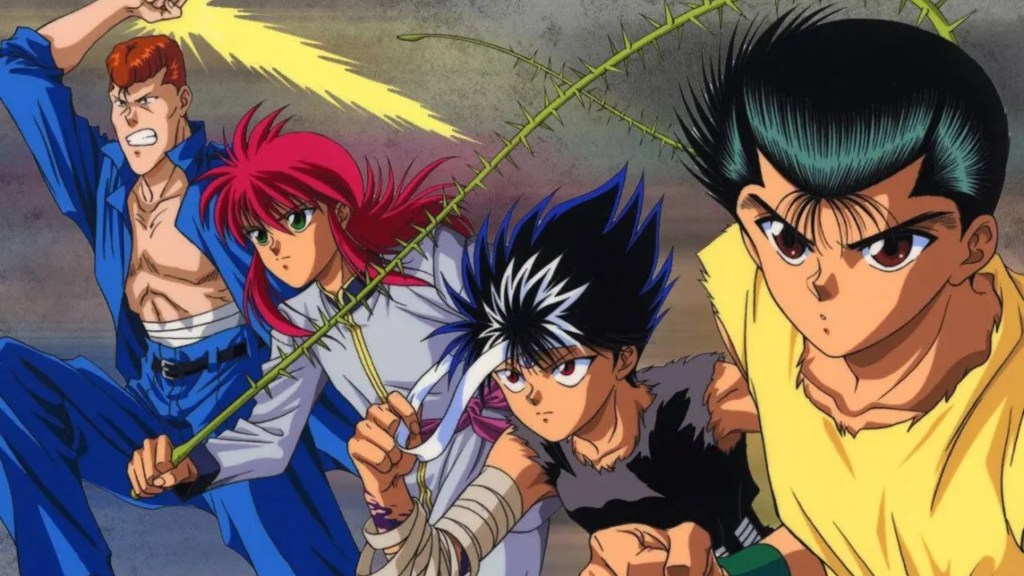
Yu Yu Hakusho tells the story of Yusuke Urameshi, a troubled teenager who dies saving a child and is brought back to life as a “Spirit Detective.” Tasked with investigating cases involving supernatural threats and protecting the human world from the unseen, Yusuke’s story is oddly similar to Ichigo’s. Especially since the latter also becomes a shinigami after nearly dying when his family is attacked by Hollows.
The overall plot structure is similar, too. Both anime follow ordinary teens who get pulled into dangerous roles, faced by threats regular society can’t even conceive, let alone defend against. They grow stronger as they fight enemies from other worlds in supernatural conflicts. And both feature a tight-knit group of friends. If you’re hooked on Bleach, Yu Yu Hakusho is the perfect action-packed follow up with its raw ’90s charm.
Demon Slayer: Kimetsu no Yaiba
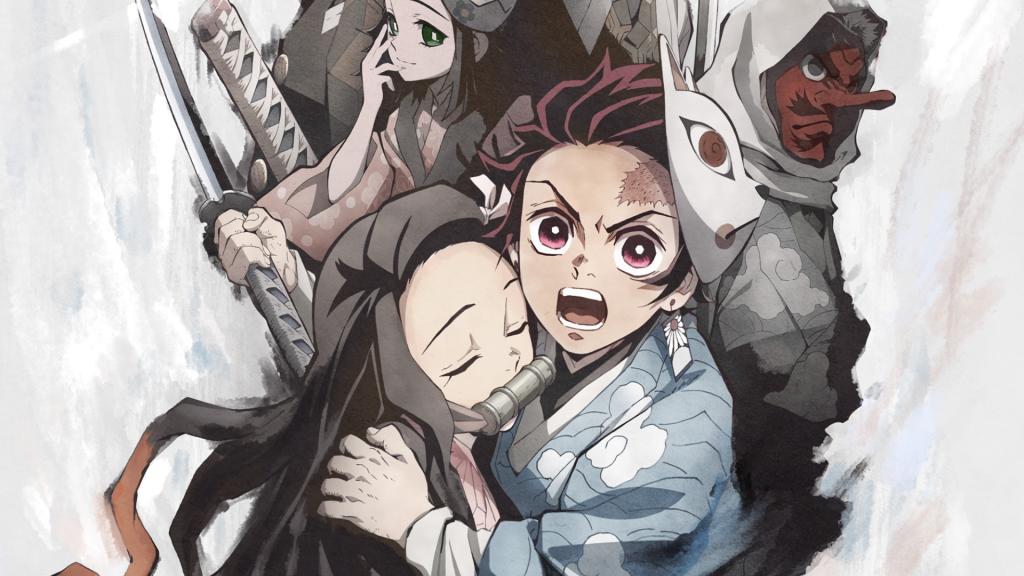
While Demon Slayer feels more historical than Bleach, both anime are driven by sword-wielding characters who fight monsters that were once human. In Bleach, the Hollows are corrupted human spirits, whereas in Demon Slayer, Muzan turns humans into demons by giving them his blood. Ichigo takes on Hollows to protect the human and spirit worlds, while Tanjiro fights demons to save his now demonic sister and the rest of humanity.
On top of that, Bleach’s Soul Society and the Demon Slayer Corps are both structured into ranks. With the strongest members holding the titles of Captain and Hashira, respectively. While Demon Slayer’s characters are more human and the series spends more time exploring grief, trauma, and the toll fighting takes on you, if you’re into intense battles that pack an emotional punch, both Bleach and Demon Slayer have you covered.
Rurouni Kenshin
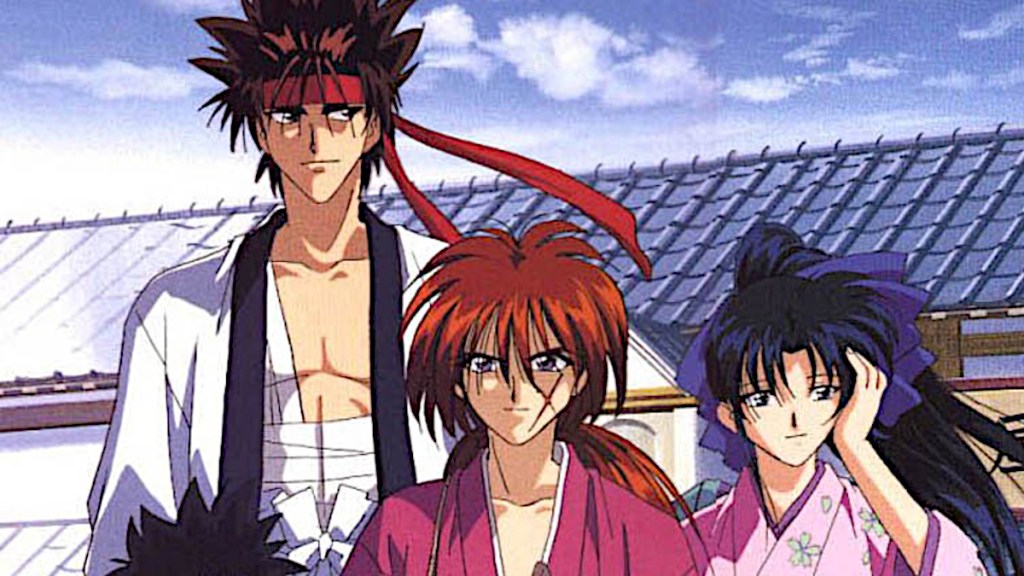
Rurouni Kenshin and Bleach are both heavily rooted in sword fighting. But where Bleach features soul-cutting zanpakutōs wielded by Shinigami or Gods of Death, Ruroni Kenshin follows the former assassin Kenshin who now travels to protect people without killing. The characters are similar, too. Kaoru is a strong, kind figure like Rukia. While Sanosuke and Renji both start off as enemies and grow into close allies.
Bleach has more speed and spectacle than Rurouni Kenshin, which keeps its story focused on Meiji-era Japan and the people living through that change. The Meiji government mirrors Soul Society given how it’s so powerful, flawed, and full of secrets. But even though the settings and styles are different, if you like Bleach, you’ll definitely find something to appreciate in Rurouni Kenshin.
Inuyasha
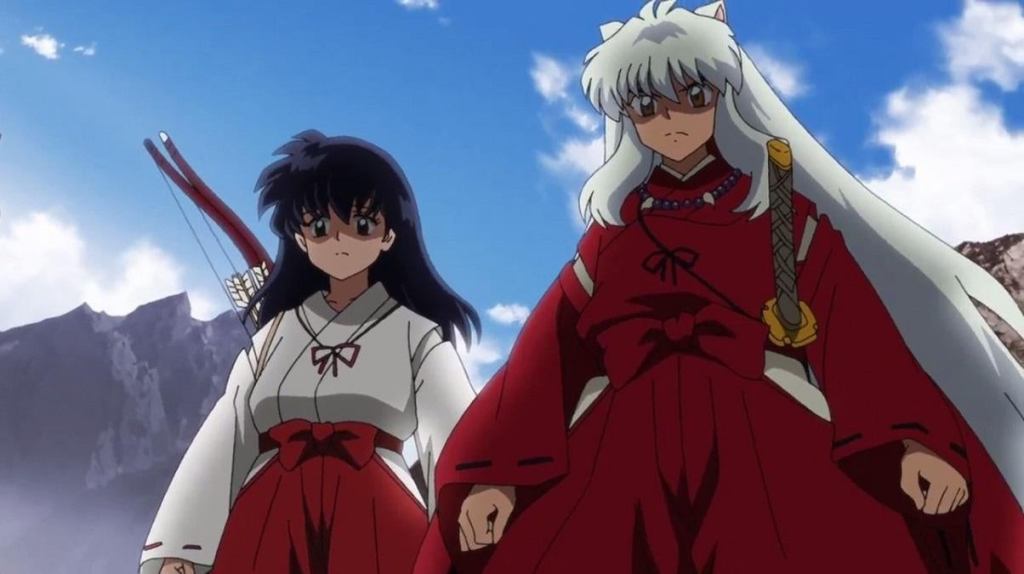
In Inuyasha, teen girl Kagome falls through a well and ends up in a past version of Japan. Here, she meets the half-demon Inuyasha and joins him on a quest to find the scattered jewel shards. Like Ichigo in Bleach, Kagome is caught between two worlds and must learn to fight alongside others who are stronger, weirder, and sometimes way more stubborn than she is.
Both shows feature fierce battles, ancient weapons, and a steady stream of emotions as they center around characters trying to protect what matters to them while dealing with their own baggage. But unlike Bleach, Inuyasha is more of an old-school fantasy with a softer, more romantic pull. There are even some slow, sweet moments in between battles. Despite this, if you love strong friendships and cool fights featuring giant swords, it hits the right spot.
[RELATED – This Underrated Bleach Arc Is Hated by Fans (And Doesn’t Deserve to Be)]
Shaman King
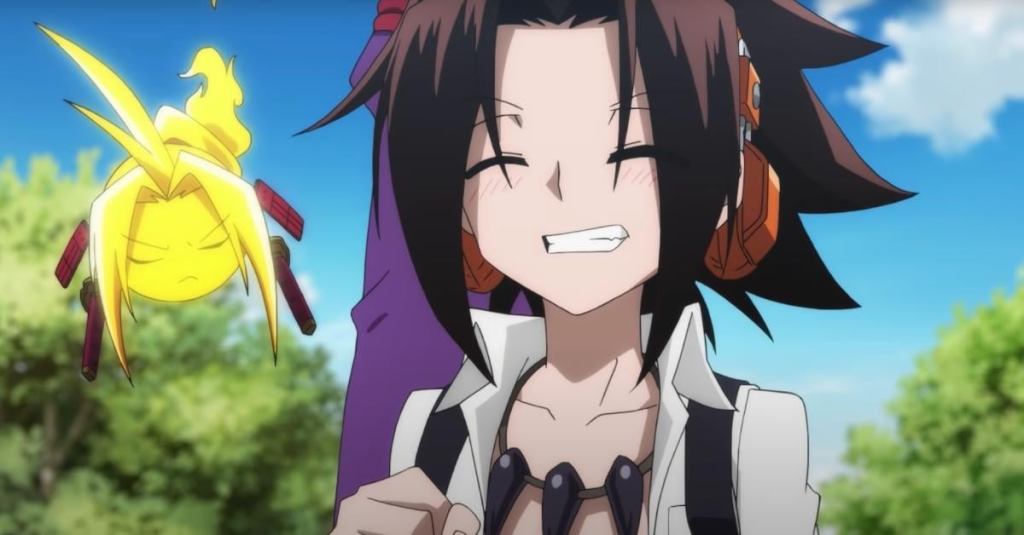
Shaman King and Bleach both follow teenagers thrown into worlds filled with spirits and battles. In Shaman King, Yoh teams up with a samurai ghost named Amidamaru and aims to win a tournament that will reshape the world. Like Ichigo in Bleach, Yoh is frequently underestimated but stronger than he seems. He cares deeply about his friends and has a sense of purpose that grows as the story moves forward. With the 2021 Netflix adaptation a more faithful, if slightly divisive version of the series compared to the nostalgic original (free on Tubi!) the series is easily accessible for newcomers and hardcore fans alike.
The two shows feel especially similar in how they treat the spirit world. Both are full of characters with special powers tied to their spiritual strength. In Bleach, those powers are inherent to Shinigami. While in Shaman King, characters obtain special powers by bonding with ghosts who bring their own skills and past to the table. That’s how Yoh gets his characteristic Oversoul technique which channels spirits into weapons, an ability oddly reminiscent of Bleach’s spiritual zanpakutōs.
Noragami
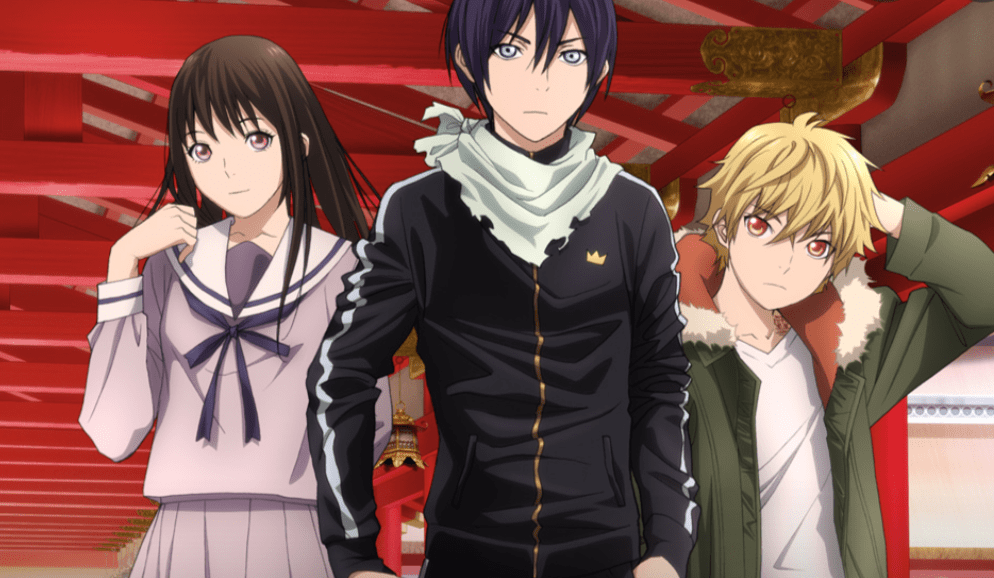
Noragami and Bleach both follow characters who protect people from spirits. In Noragami, Yato is a small-time god who takes odd jobs to gain followers while fighting phantoms that can harm humans. His situation is reminiscent of Bleach’s Death Gods, except instead of a whole Soul Society, Yato is one guy with mostly only himself to rely on.
The two shows have a lot in common when it comes to the kind of action they offer and the way they explore the spirit world. But while Bleach builds its world with places like Soul Society, Noragami keeps things grounded in modern Japan, which makes its fantasy feel closer to home. If you enjoy watching characters grow while dealing with spirits and deep bonds, then Noragami will give you a humorous but deep story you’ll want to follow.
Beelzebub
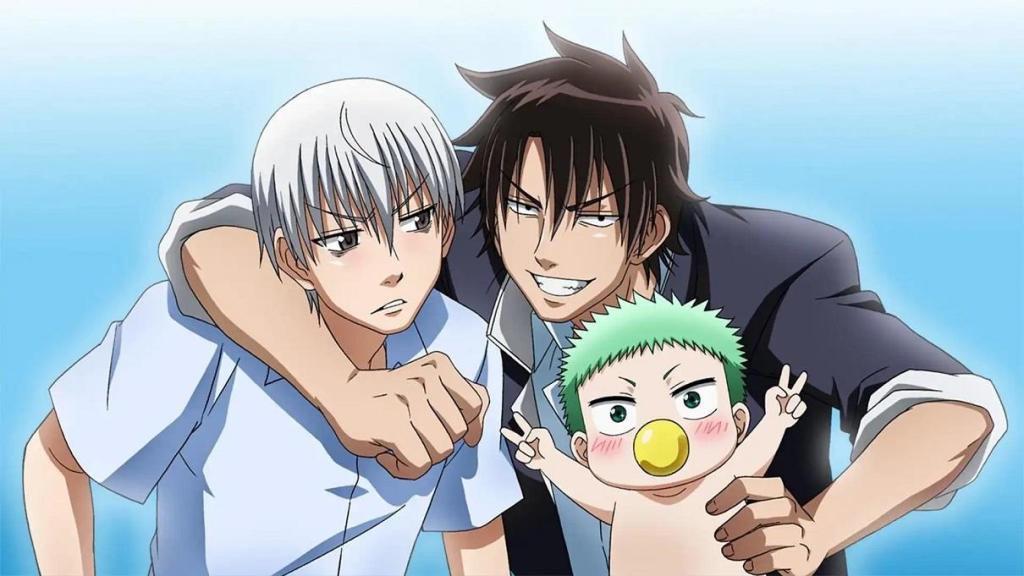
Beelzebub’s Tatsumi Oga is a normal high schooler, until he ends up taking care of the Demon Lord’s baby son. This leads to plenty of funny and crazy situations with demons. And like Bleach’s Ichigo Kurosaki, Oga suddenly enters a world he knows nothing about and has to fight strong enemies with supernatural powers.
On top of that, both of these characters share a “double life” of highschool struggles and supernatural powers. The way Oga uses brute force to protect people is similar to Ichigo’s raw fighting. But while both anime have big fights, Beelzebub often mixes in funny moments to make things less intense. All in all, if you like the action in Bleach but want something lighter, Beelzebub might be a great pick.
D.Gray-man
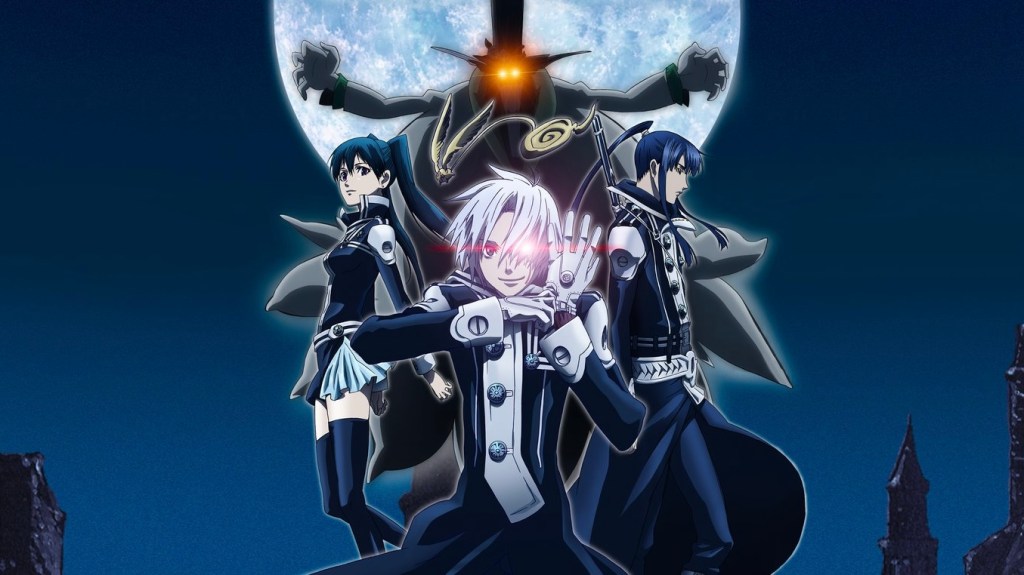
D.Gray-man and Bleach have a lot in common, especially when it comes to battling dark forces. Allen Walker from D.Gray-man is an exorcist who fights Akuma, evil creatures created by the Millennium Earl. Both Ichigo and Allen face big challenges as they struggle with their own identities and the responsibilities that come with their powers.
While Bleach shows characters making sacrifices, D.Gray-man focuses more on how those sacrifices weigh on the characters, often leading to deep emotional moments. Both shows have fast-paced action, but D.Gray-man has a darker feel. Its stakes are higher, and the characters face more loss and suffering along the way. If you loved the emotional depth and darker themes in Bleach, D.Gray-man offers something similar with more focus on loss and sacrifice.
Soul Eater
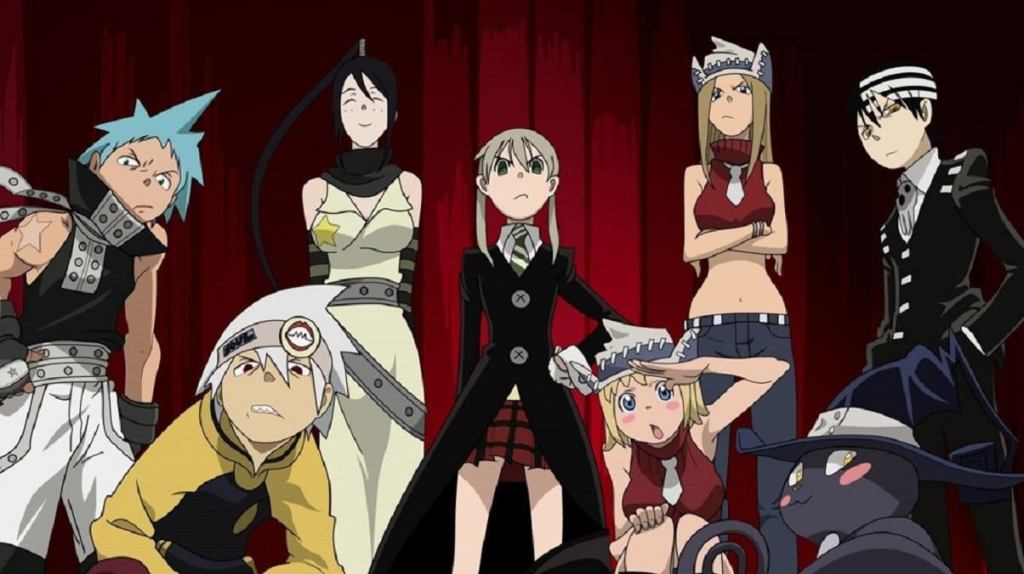
If you’re new to Soul Eater but love Bleach, you’ll notice a lot of overlap. Both shows are about people who fight evil spirits to protect the balance between life and death. In Bleach, Ichigo’s job is to help souls pass on and fight the corrupted ones. Meanwhile, souls are considered the source of Power in Soul Eater. The anime follows students at the Death Weapon Meister Academy who are trained to stop evil souls called Kishin Eggs from becoming full-fledged monsters known as Kishin.
The biggest similarity is between Soul Eater’s Weapons and Bleach’s zanpakutōs. In Bleach, Soul Reapers have a zanpakutō sword with its own spirit that takes a humanoid form inside the Reaper’s mind. In Soul Eater, Weapons are quite literally humans who can shift into guns, swords, and scythes. In both shows, the bond between the fighter and their weapon is central to the battles and story, making Soul Eater a must-watch for anyone who loves Bleach.
The post 10 Best Anime to Watch If You Like Bleach appeared first on ComicBook.com.

